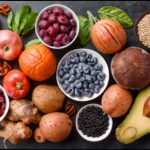Adult-onset diabetes, more commonly known as Type 2 diabetes, is a condition that disrupts the way your body processes blood sugar, leading to elevated glucose levels and insulin resistance. This form of diabetes varies significantly from its Type 1 counterpart, predominantly due to the factors that contribute to its development.
Causes and Symptoms
The Role of Lifestyle in Adult-Onset Diabetes
Though the exact cause remains unclear, medical professionals unanimously agree that lifestyle choices significantly influence the risk of developing this type of diabetes. Poor dietary habits, especially those including excessive consumption of red meats like beef or lamb, are identified as notable risk factors.
Recognizing the Symptoms: A Critical Step
Symptoms often include persistent thirst, frequent urination, extreme fatigue, blurred vision, unexplained weight loss, recurrent genital thrush, and slow-healing wounds. Early recognition and intervention can drastically change the course of the disease, emphasizing the importance of being attuned to your body’s signals.
Meat Consumption and Diabetes Risk Evaluating the Evidence
What Recent Studies Reveal
Dr. Deborah Lee of Dr. Fox Pharmacy highlights that daily red meat consumption substantially increases adult-onset diabetes risk. This conclusion is based on an analysis of U.S. cohort studies, demonstrating a 20% heightened risk with just 3 ounces of daily meat consumption. Alarmingly, smaller daily portions of processed meats, like hot dogs or bacon, surged this risk by 51%.
Red Meat: A Closer Look at the Risks
Red meats, particularly when consumed in large quantities, have been linked to an array of health issues, including a significant spike in diabetes risk. Their high content of harmful substances like haem iron and saturated fats partly explains this correlation.
Processed Meats: A Hidden Danger?
The dangers extend to processed meats, which are often loaded with sodium and preservatives like nitrites. These compounds can undergo chemical reactions during cooking, forming nitrosamines, another health-harming component.
The Science Explained Why Meat Raises Diabetes Risk
The Issue with Haem and Oxidative Stress
Haem, abundant in red meat, contributes to the formation of reactive oxygen species (ROS), leading to oxidative stress and tissue damage. This imbalance between antioxidants and free radicals in the body significantly contributes to diabetes complications.
Iron Overload and Pancreatic Damage
Excessive iron, specifically from red meat, can also impair the pancreas’s beta cells—those responsible for insulin production. This damage is a direct link to the development of adult-onset diabetes.
Sodium and Nitrites: More Than Just Preservatives
The high sodium and nitrite content in red meat doesn’t just preserve the meat; they undergo chemical changes during cooking, resulting in nitrosamines, known carcinogens that also heighten diabetes risk.
Rethinking Your Diet for Better Health Making Healthier Choices
The Power of Plant-Based Diets
Transitioning to a plant-based diet rich in fruits, vegetables, legumes, seeds, and nuts can mitigate various chronic health conditions, including diabetes. These dietary patterns are associated with lower body fat and reduced weight gain, both protective against diabetes.
What About a Vegan Diet?
While vegan diets are often healthier due to their low saturated fat content, not all vegan foods are created equal. Highly processed or sugar-laden vegan foods can still pose health risks; hence, mindful choices are key.
Components to Watch Out for in Any Diet
Regardless of diet type, beware of excessive sugars, fats, and salts. Even the healthiest-sounding diets can harbor these hidden threats, underscoring the importance of vigilant food selection and preparation.
Preventive Diets for Adult-Onset Diabetes Specifics of a Diabetes-Preventive Diet
Embracing Whole Foods
A diet focused on whole foods—whole grains, vegetables, fruits, nuts, and legumes—with minimal animal products and refined foods is pivotal in diabetes prevention. It staves off excessive weight gain, a significant risk factor for adult-onset diabetes.
How Does A Plant-Based Diet Influence Gut Health?
Foods to Avoid for Prevention
Convenience might prompt you to grab a milkshake or a bag of chips, but these quick fixes are dietary pitfalls. Instead, savor a bowl of homemade whipped cream with strawberries and blueberries—a sweet treat with natural sugars and essential nutrients.
Lifestyle Changes Beyond Diet
Though diet is crucial, other lifestyle modifications, including regular physical activity, adequate sleep, and stress management, are equally vital. A holistic approach to health can substantially lower your diabetes risk.







